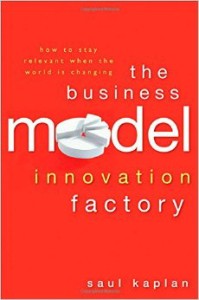[ People think New York and they think Manhattan first, or maybe the finer precincts of Brooklyn. But it's an amazingly diverse city. Jefferson Mao grew up in Flushing, Queens, and writes a blog dedicated to that extremely diverse and interesting neighborhood. It's called Flushing Exceptionalism and you ought to give it a look. In this piece reprinted from that blog, he talks about entrepreneurship and the life conditions of the immigrant - Aaron. ] I was there for the entirety of the One Dollar Bus Era in Flushing. It was on a Sunday when … [Read more...]
Gaps in Chicago’s Global City Fabric
The is the last of three installments on Chicago as a global city, and is also part of my "State of Chicago" series. Chicago is definitely in a global city in any definition, but if you parse apart its economy, the global city part is smaller than is generally believed, and in any case is too small to carry the city, region, and state alone. Chicago is in many respects a regional capital like Atlanta, with an economy still tied heavily to its regional hinterland. I'd also like to point out that Chicago is completely missing various pieces … [Read more...]
Chicago As a Global City
This article is part of the State of Chicago series. At this point in my series I'm looking at a couple of my frames on Chicago's problems that are not commonly known or held. The first was Chicago's lack of a calling card industry. I'm now looking at Chicago's weakness as a global city and the excessive focus civic leadership has put on being a global city at the expense of everything else. (I will not be further reviewing well-known and uncontroversial problems such as the fiscal mess). Ranking Chicago as a Global City Last week I … [Read more...]
Anorexic Vampires and the Pittsburgh Potty: The Story of Rust Belt Chic
“Rust Belt Chic is the opposite of Creative Class Chic. The latter [is] the globalization of hip and cool. Wondering how Pittsburgh can be more like Austin is an absurd enterprise and, ultimately, counterproductive. I want to visit the Cleveland of Harvey Pekar, not the Miami of LeBron James. I can find King James World just about anywhere. Give me more Rust Belt Chic.” Jim Russell, blogger at Burgh Diaspora National interest in a Rust Belt “revival” has blossomed. There are the spreads in Details, Atlantic Cities, and Salon, as well as an … [Read more...]
The Columbus, Indiana Values Proposition
[ Columbus, Indiana has long been known as a special place. Which is too bad, since unlike most small industrial cities in America, it has actually been a success. Alas, despite its clear superior performance, few places show any interest in trying to replicate the things that made it successful. National Public Radio recently ran a segment on Columbus' famed architecture. In it was another telling quote from town patriarch J. Irwin Miller that sums it up: "Whatever you do in this world, you've got a responsibility and a privilege of doing … [Read more...]
State of Chicago: Lacking a Calling Card Industry
This article is part of The State of Chicago. I now want to transition from a look at historical and current conditions in Chicago to a defense of a couple of my more controversial diagnoses that attepted to explain the problems behind Chicago's weakness in recent years. These were my observation that Chicago lacks a "calling card" industry, and my claim that Chicago, while a global city, is weak enough in this dimension that it cannot rely on that alone to sustain it. Today I'll look at the former. In some rankings I've seen, Chicago has … [Read more...]
A Review of Saul Kaplan’s The Business Model Innovation Factory
“Institutions are designed for stability. They are designed to protect the status quo. They are designed to resist change and are allergic even to the hint of transformation. They are not designed to reflect the will of citizens, consumers, students, patients, and entrepreneurs.” — Saul Kaplan, “The Business Model Innovation Factory”Some folks like to suggest that it is the biggest, most dense cities where the most serendipitous interactions tend to occur, the types of random encounters that lead to crazy innovative breakthroughs. I’ve found in … [Read more...]
State of Chicago: The Risks of Recovery
This article is part of the State of Chicago. In comments to previous installments, some folks have highlighted recent positive news for Chicago - job announcements, the decline in unemployment rate, some indications of a housing market uptick, and improved hotel occupancy - as evidence that perhaps I spoke too soon or was wrong about Chicago. Well, if I'm wrong, I'd happily take that. If Chicago starts back up on a 90s-like upward trajectory, that would clearly be something to celebrate. On the other hand, there are risks that come … [Read more...]
State of Chicago: Explaining the 1990s Versus the 2000s
In my article "The Second-Rate City?" I noted Chicago's very strong economic and demographic performance in the 1990s and contrasted it with the very poor performance in the 2000s. Then I outlined several problems with Chicago I thought helped drive the struggles. A few people asked a very fair question, saying, "All the negative factors you cite about Chicago (e.g., clout, business climate) were equally as true in the 1990s as in the 2000s, so what really made the difference?" I want to try to respond to that today. First, let's ask … [Read more...]
State of Chicago: New Century Strengths
This article is part of the State of Chicago. Before I say anything else I want to give a shout out of Chicago Mayor Rahm Emanuel. I've been pounding on the idea that Chicago has been overly focused on "global" at the expense of its traditional domestic and regional role as "Capital of the Midwest," a role which, like it or not, still greatly shapes the city's economic fortunes. As recently as May, the Guardian (UK) was saying that, regarding luring the NATO summit to Chicago, "Emanuel is motivated by a desire to reposition the city from … [Read more...]
- « Previous Page
- 1
- …
- 22
- 23
- 24
- 25
- 26
- …
- 36
- Next Page »



